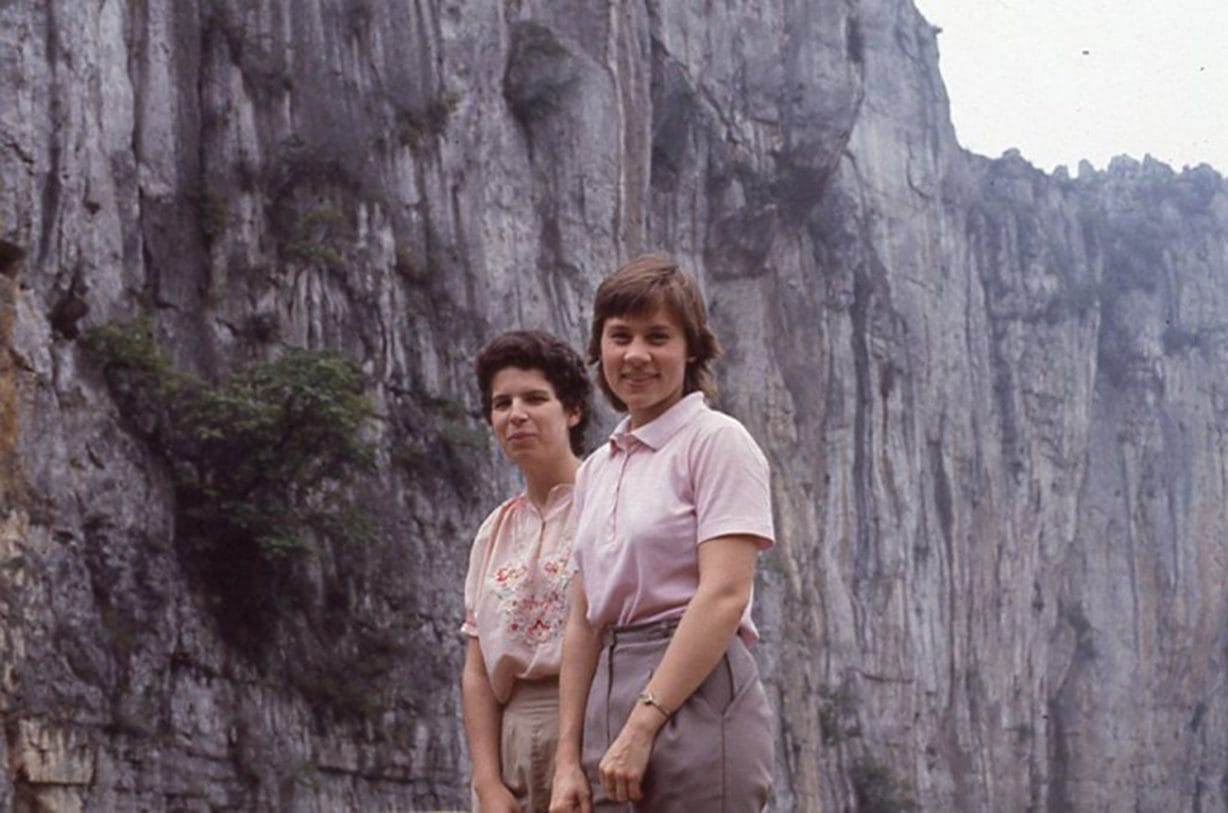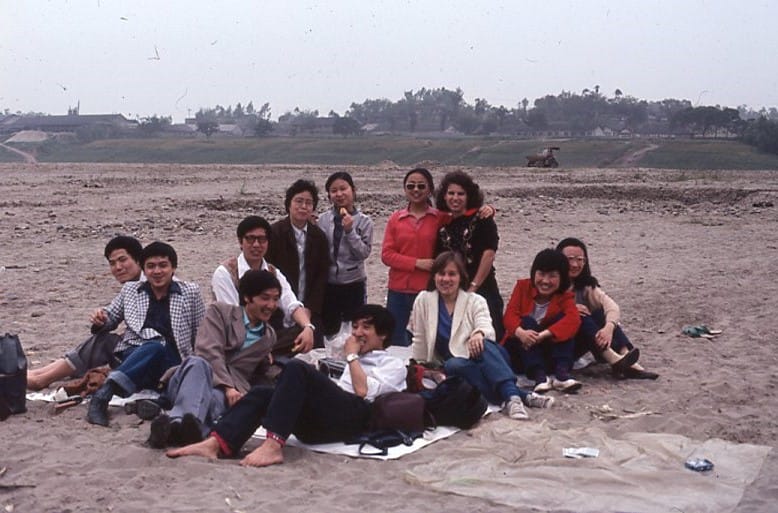
Editor’s note: Mary Ann Zehr is a former contributor to The Citizen.
By Adaire Adams, contributor
Isolated in another country, two teachers found themselves living what they considered to be a “celebrity life” in a closed-off city in China.
Mary Ann Zehr, writing program director for Eastern Mennonite University, chronicled her experience in China in the 1980s in the memoir she co-wrote with her close friend and fellow traveler to China, Fran Martens Friesen. The book, “Doors Cracked Open: Teaching in a Chinese Closed City,” includes numerous stories that the pair experienced while teaching English at a medical hospital in Sichuan Province, China.
Zehr will discuss “Doors Cracked Open” at an event at 4 p.m. Saturday, April 27, at Parentheses Books.
The memoir covers topics such as relationships, culture and religion and how these concepts differ between the Eastern and Western worlds.
“We were the only two foreigners living in the city with 400,000 people,” Zehr said.
The women were based in Luzhou. They often got stares and were shown on television in the city, especially in the beginning, considering China was closed to most foreign visitors for decades and only partially open when Zehr and Martens Friesen arrived.
Zehr and Martens Friesen decided to participate in the Chinese Educational Exchange program soon after graduating from Goshen College in Indiana — the place they met. The program connected Mennonite communities in America with China, which had a new demand for its people to learn English following the partial opening.
“The door had opened enough that there were some people that just wanted to learn about everything,” Zehr said. “They were so happy that things had opened up again and they were trying to learn as much as they could.”
Myrrll Byler, director of China Educational Exchange/Mennonite Partners in China from 1990-2020, wrote the foreword for the memoir and spoke highly of the program that ended in 2020 due to financial issues.
“The Mennonite agencies and colleges that founded the program didn’t want to just send English teachers to China, they wanted to bring Chinese people to our campuses and communities so we could also learn from them,” Byler wrote in an email to Zehr.
The women’s memoir discusses their experiences, including the humorous ones. Each chapter alternates between Zehr and Martens Friesen’s writing, piecing together what they experienced in a retrospective manner.
They both recalled being invited to people’s houses and soon after having the invitation revoked because of the strict rules regarding socializing with American teachers, causing Zehr and Martens Friesen to feel isolated. The women spent much of their time entertaining each other with activities like tea parties because meeting other people wasn’t always an option.
“When we were there, we were really frustrated,” said Zehr, who spent two years in China. “People we liked, we wanted to spend more time with, but now I understand better.”
For example, Teacher Lin, a man who was part of the waiban (foreign affairs office), spent a great deal of time with Zehr and Martens Friesen, almost to a point where it seemed like he was trying to keep them from meeting other people.
Zehr said she understands why he acted in this way now because of the “pressures” that were on him. Nonetheless, the intentional isolation was “demoralizing,” Zehr said.
As two headstrong women in their 20s, Zehr and Martens Friesen refrained from being “opinionated” because they “want to learn” from the people in Luzhou, Zehr said.
Even with the strict rules in place, Zehr and Martens Friesen still occasionally went to peoples’ houses for dinner.
Zhang Dongni, their translator, was curious about American culture and relationships. Martens Friesen wrote that Zhang loved to talk about “matters of the heart” and was more than happy to invite them to her home for dinner.
The women made other connections, such as with the man who taught them lessons in taiji, Chinese philosophy, for a while, however these lessons came to an end after he wrote Zehr a love letter. Zehr has kept this letter since, calling it a symbol in the memoir.
“Even though things were very tight, people still have their own feelings and ideas, and they will not necessarily do what they are supposed to do,” Zehr said. “I think that’s one of the big reasons we wanted to write this book.”

Part of the book discusses Teacher Lin’s generalizations about Zehr and Martens Friesen being selfish, a likely connection to capitalism in the Western world. What Teacher Lin did not take into account is that part of being a Mennonite is living a simple lifestyle.
As Mennonites, Zehr and Martens Friesen were frustrated that it took as long as it did for them to get approved to go to church and practice their religion. Zehr remembers losing some faith in her 20s.
“I had grown up Christian but I hadn’t had practices of my own yet,” Zehr said.
She said she remembers gaining faith again when she realized how many people continued to practice Christianity or become Christian later in their lives in a communist society that isn’t always tolerant of diverse religions.
Now, with tensions between the U.S. and Chinese governments, Zehr said it’s important to remember that the people who live in the country are different from the government.
“Now, there’s a lot of talk in the news about criticizing China and sometimes criticizing Chinese people, but they’re humans like we are and have feelings,” Zehr said. “They might not be thinking the same way the government is thinking.”
Thanks for reading The Citizen, which won the Virginia Press Association’s 2022 News Sweepstakes award as the top online news site in Virginia. We’re independent. We’re local. We pay our contributors, and the money you give goes directly to the reporting. No overhead. No printing costs. Just facts, stories and context. We value your support.













